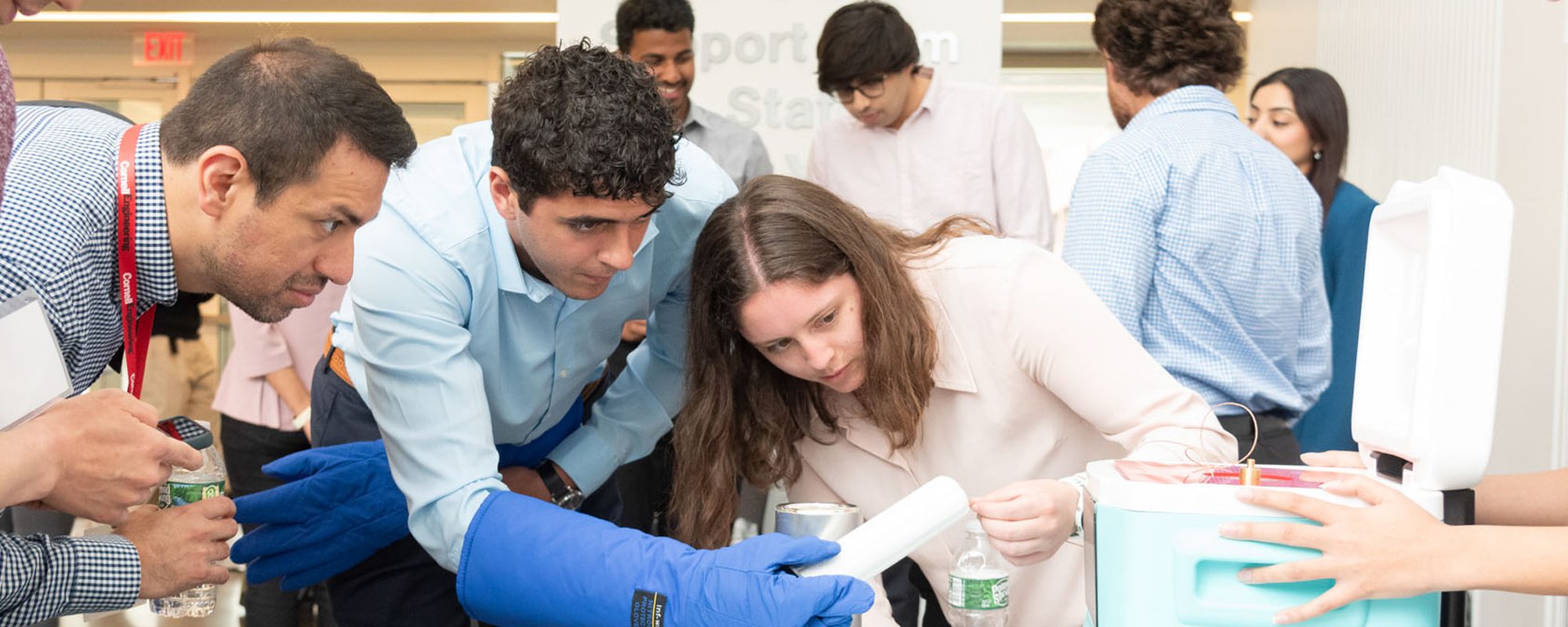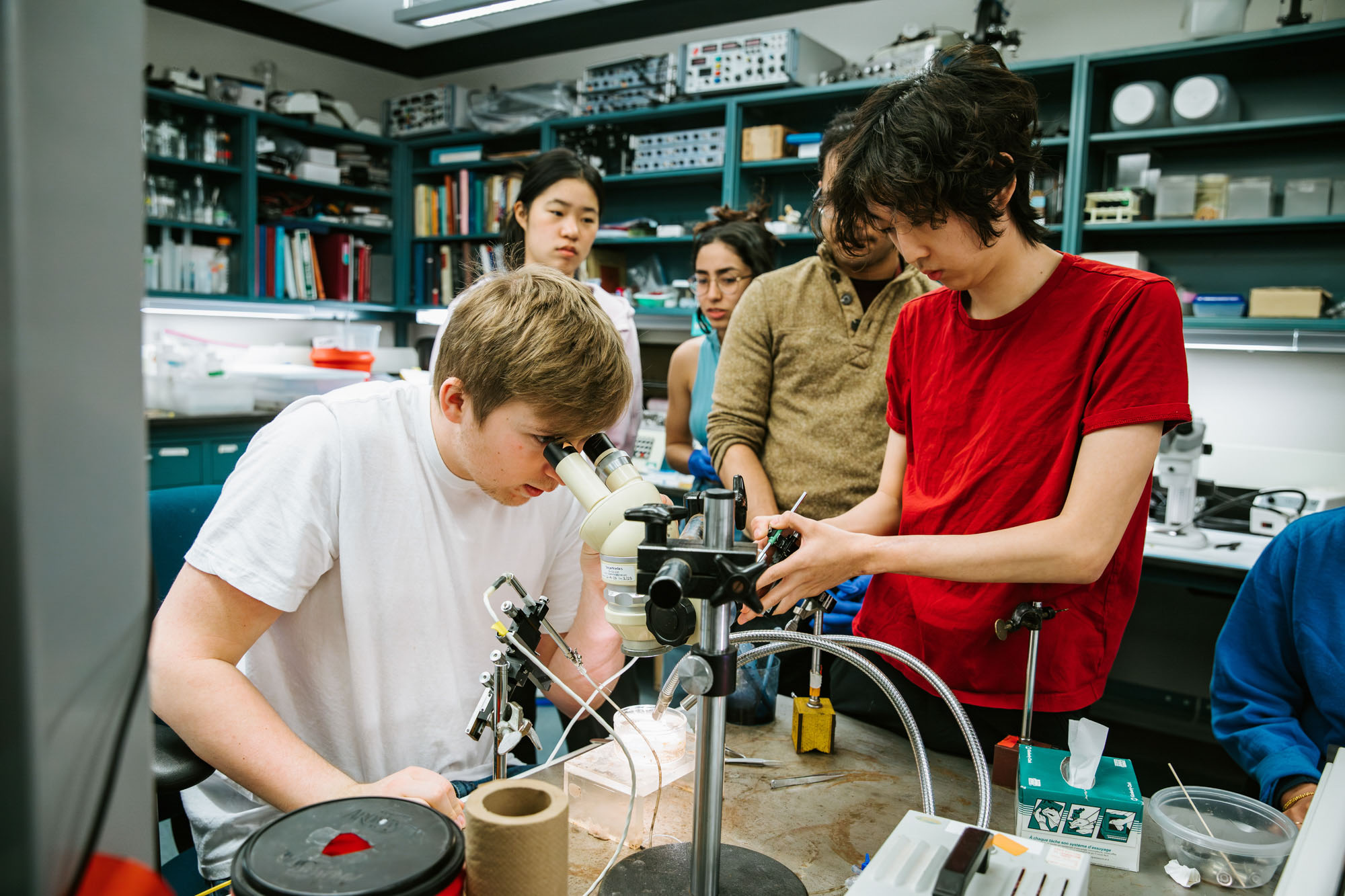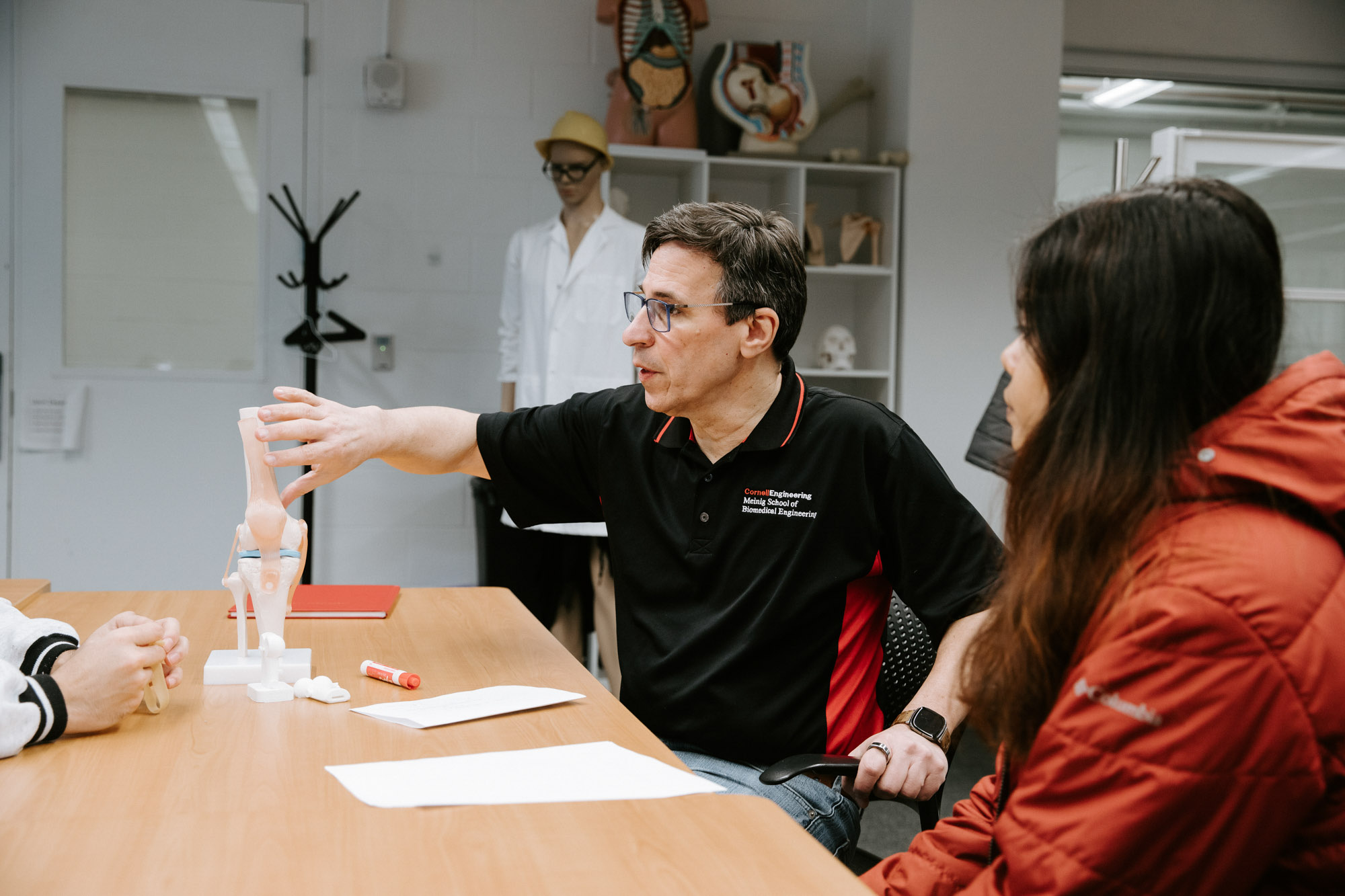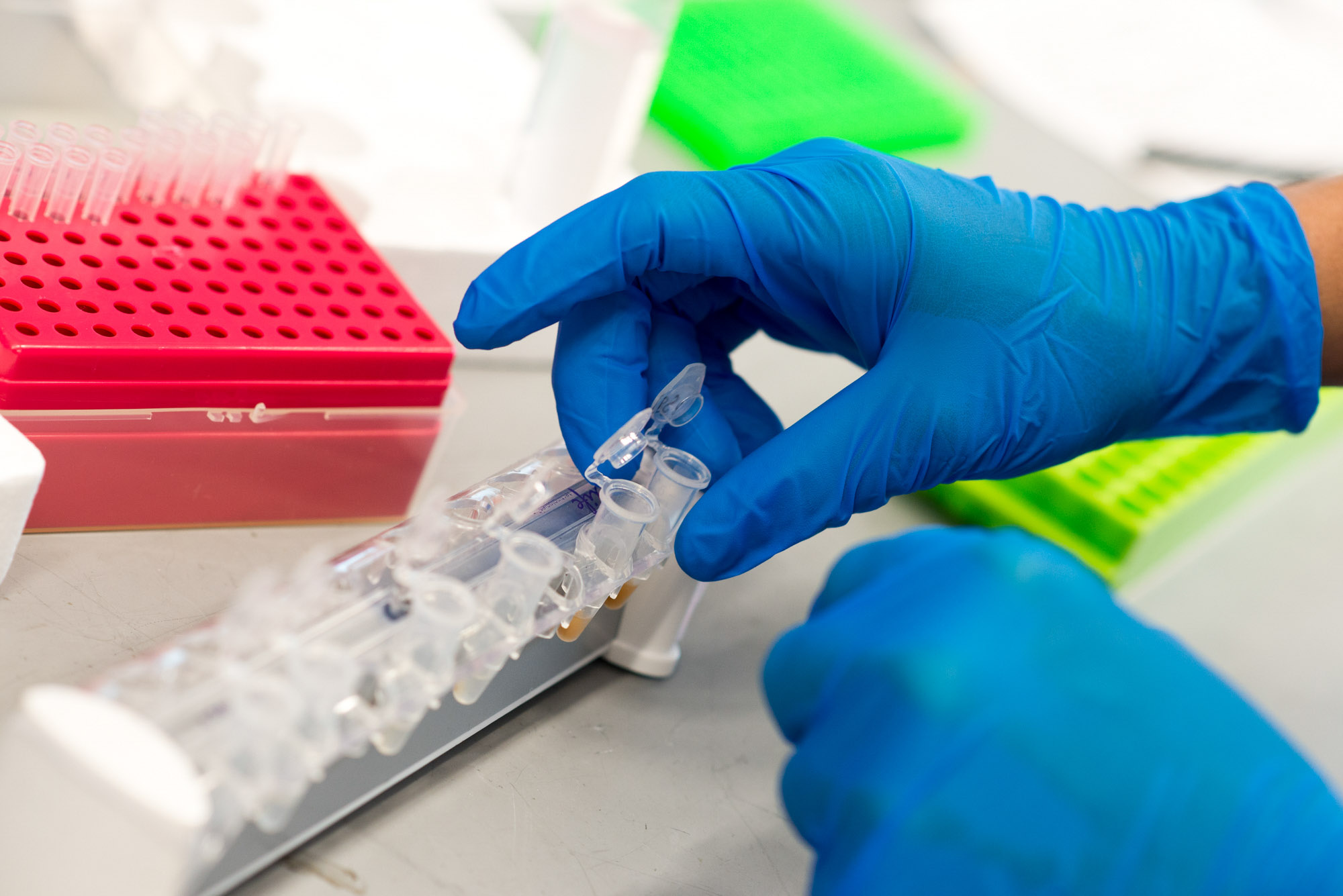Transform Ideas Into Impact with Cornell’s M.Eng.
Our hands-on, one-year program immerses you in biomedical engineering practice and design. You will:
-
Identify, validate and address unmet clinical needs with a user-centered approach.
-
Invent, design, and develop cutting-edge, value-driven medical technologies.
-
Navigate the complexities of the healthcare industry, from innovation to implementation.
-
Deepen your technical and scientific expertise in your area of interest.
-
Build essential professional and leadership skills for a dynamic career.
-
Tackle real-world biomedical challenges, applying theory to practice.
Program Elements
Our program combines professional development, STEM coursework, and hands-on design experiences, ensuring that every student gains both broad knowledge and specialized expertise in a chosen area of biomedical engineering.
Students work on industrial, clinical, and translational research projects within our state-of-the-art design complex, an academic simulation of an innovative medical technology design company. This immersive environment fosters creativity, problem-solving, and real-world application.
Additionally, our engineers may have the opportunity to participate in a semester-long clinical preceptorship, gaining firsthand insight into healthcare challenges and the clinical impact of biomedical innovations.
-
![Students in Shivaun Archer's lab stand around another student looking through a microscope]()
Degree Requirements
Typical coursework consists of 30 credits completed over two semesters. For students who might need to strengthen their foundational knowledge or wish to explore their field in greater depth, we might offer a three-semester option to tailor the program to their goals and background.
-
![Professor Newton DeFaria points to a model of the human knee as he talks with two students in one of the BME project teams spaces.]()
Design Project
As part of our corporate simulator, our design engineers collaborate with industry leaders, clinical institutions, and academic partners to identify and validate unmet healthcare needs, develop innovative solutions, and engineer conceptual prototypes that push the boundaries of biomedical technology.
-
![A researcher wearing blue gloves works with vials in the De Vlaminck Lab.]()
Preceptorship
Select M.Eng. students can experience clinical practice and research at Guthrie Hospital in Sayre, Pennsylvania.
Dual Degree Options
M.D.-M.Eng. Dual Degree Pilot Program
Cornell’s innovative M.D.-M.Eng. pilot program equips future physicians with advanced engineering expertise, bridging medicine and technology. This unique opportunity allows Weill Cornell Medicine students to earn a one-year M.Eng. while in medical school, gaining a deep biomedical foundation, quantitative engineering skills, and hands-on clinical experience. Students collaborate with peers, researchers, and industry leaders to tackle real-world healthcare challenges, customizing their experience to align with their career goals.
Cornell’s world-class programs in engineering and medicine make it the ideal place for a pioneering dual-degree pathway. With this program, WCM becomes the only medical school in New York State to offer a master’s degree in engineering, setting a new national standard for physician-engineers. Graduates will enter residency with a competitive edge, equipped with the design, analytical, and problem-solving skills that define engineering leaders in healthcare. This distinctive program also strengthens Cornell’s ability to attract top premedical students with strong backgrounds in science and engineering.
“Most memorable to me is the feeling of pride, satisfaction, and accomplishment as I finished assembling my medical device capstone project, a robotic mobility device for toddlers. I spent over 300 hours designing, fabricating, and prototyping the device and seeing all of my hard work and effort finally come together into a beautiful, finished product is still one of my most cherished memories.”
James Bennett BME’21
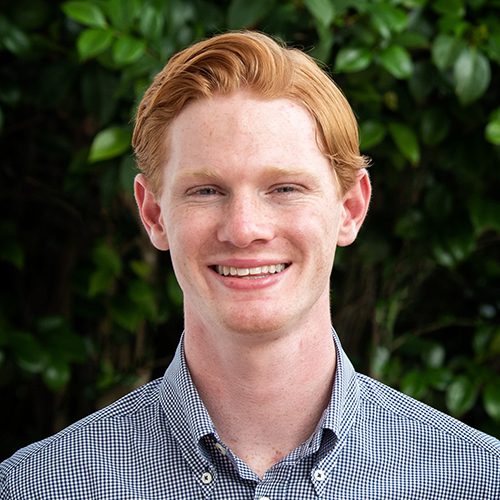
Featured Employers
- Abbott Labs
- Aptagen, LLC
- AstraZeneca
- Axtria
- Biosense Webster
- Brainlab Inc.
- Bristol-Myers Squibb
- Chartwell Consulting
- Eli Lilly
- Epic Systems
- Eurofins LLC
- ICONMA
- Johnson & Johnson
- Medtronic
- Merck
- MilliporeSigma
- Mission:Cure
- National Grid
- Polaris Laboratories
- RefleXion Medical
- Regeneron
- Sanofi
- TE Connectivity
- Trinity Life Sciences
- UC Berkeley
- University of Pittsburgh Medical Center
- WuXi Biologics
Job Title Examples
- Analyst
- Application Engineer
- Associate Clinical Account Specialist
- Associate Consultant
- Associate Scientist
- Biomedical Engineer
- Biotechnology Research Specialist
- Cell Therapy Rotational Program (CTRP) Associate
- Firmware Engineer
- Manufacturing Engineer
- Process Engineer
- Product Development Engineer
- Project Manager
- Quality Engineer
- R&D Engineer
- Research Associate
- Research Engineer
- Senior Research Associate
- Software Quality Assurance Engineer
- Systems Engineer
- Test Engineer
- Verification Engineer
M.Eng. Program Contacts
-
Graduate Student Services Coordinator – M.Eng. Program
